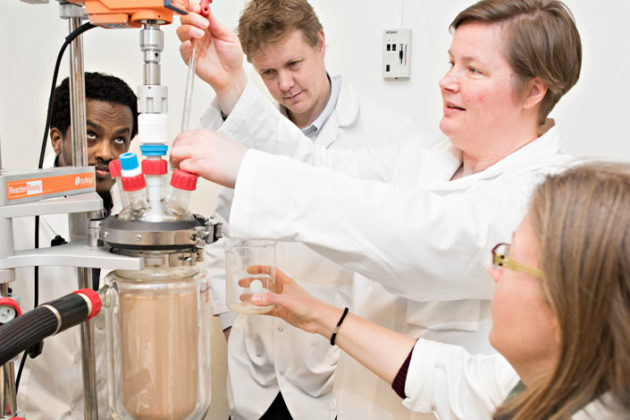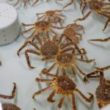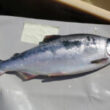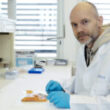Peptek
Peptide technology for the future’s protein production

With the use of modern, research-based process technology and expertise, unused or under utilized biomass of marine or terrestrial origin can be used for new, marketable products. We coordinate, develop and increase Nofima’s total expertise related to the future of sustainable protein production. Peptek is a strategic research initiative focused on sustainability, total utilization, food safety and future food security.
Start
01. Jan 2016
End
31. Dec 2022
Funded by
Nofima
Project Manager(s):
Background
In recent years in Norwegian industry, research, active agencies and management, there has been an enormous growth in the interest in questions related to the bioeconomy and sustainability. Today at Nofima, there are many initiatives and a large variety of, and sometimes overlapping, expertize that can be placed under the umbrella terms bioeconomy and biotechnology. In order to enable us to focus our efforts, distinguish ourselves as a research institute, and deliver quality research in an innovative and expert community, we will gather expertise to develop research opportunities – for the benefit of industries, the economy and sustainability.
After primary production in the meat, fish, dairy and vegetable industries, a substantial amount of protein-rich biomass remains unused. Today this is known as residual raw materials, and in many cases called by-products. In communication with research and industry we see that there is still a lack of knowledge about what possible products this biomass can be used for, and what the market potential really is. This lack of knowledge makes many cautious about initiating projects and investments with respect to residual biomass after production. Thus, potentially valuable biomass largely goes to low paying markets, such as silage, soil improvement or combustion. If the value of products from this biomass together with reproducible and efficient methods of procuring products could be demonstrated, more corporate partners would invest in these solutions. An increased usage would be positive from the perspectives of business economics, bioeconomy and sustainability.
Project Description
With Peptek we aim to establish a comprehensive approach and procedures for the treatment of unused or remaining biomass in the form of residual biomass after food production. The primary focus is proteins, peptides and other low molecular water-soluble components. By developing comprehensive solutions for characterisation and processing, we will lay the foundation for the future’s protein production.
By collecting, correlating, systemizing and increasing knowledge in these fields, Nofima, through Peptek, will gain control of the entire value chain associated with residual raw materials. Peptek will contribute to:
- Increased knowledge on residual raw material and how they are optimally utilised.
- Increased knowledge on processing possibilities and how raw material quality and processing settings affect end-product qualities.
- Increased knowledge on product possibilities and product qualities like taste, smell, functional properties, chemical composition, bioactivity and bioavailability.
- Increased knowledge on market potential and market value in a bioeconomical perspective.
In total, these focus areas will tie together the entire value chain from characterization to finished product, and be the best overall solution for the processing of all types of raw material.
By means of Peptek as a strategic research initiative in Nofima, the institute will secure and strengthen our position among the internationally leading applied research communities within sustainable protein production and contribute to increasing value creation in the business world with the use of this expertise.
Film
Publications
Strategic priority areas
Nofima invests its own resources in order to increase competence in useful, relevant and innovative areas and strengthen our position among the leading applied research institutes.





